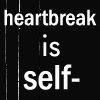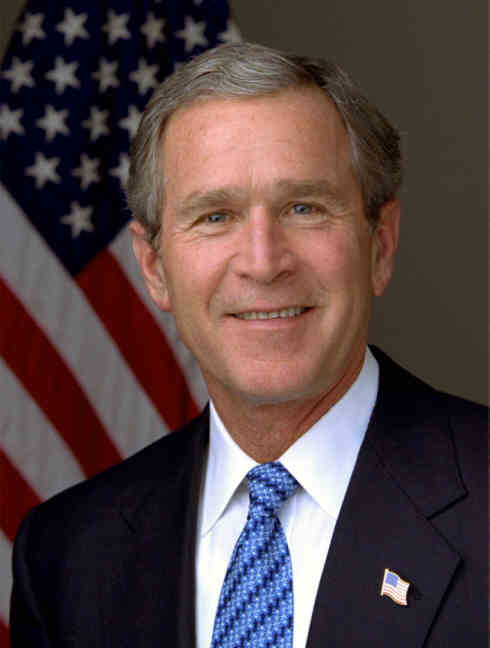Understanding Comics, Chapter 1: Setting the Record Straight
The first question that comes to mind when considering the title of this chapter is: what record? Using a personal anecdote, McCloud cleverly sets out the stereotypes and stigmas concerning comic as the first obstacle to tackle (McCloud 2-3). Dispelling these myths requires, most importantly (in McCloud’s view, 3), creating an adequate definition to express the true potential of comics—so that comics, as a medium, can escape from the narrowly drawn box most of us have trapped it in inside of our minds. Establishing comics as an artform or medium for artists to work with is a crucial first step towards defining “comics” itself.
Here I must pause to admire McCloud’s presentation and persuasive technique. It is only apt to use comics itself as the medium to help readers understand comics. I can only imagine the exponentially decreased effectiveness of the book if its explanations were portrayed in some dryer manner. In convincing his audience that comics is a versatile medium capable of “hold[ing] any number of ideas and images,” (McCloud 6) the graphic analogy McCloud employs is far more compelling than merely the textual analogy. Depicting comics as a beaker capable of being filled with any combination of liquid content and placing the beaker of comics alongside the containers of music, theatre, the written word, etc. increases the validity, and indeed, the power, of comics as an art form on the level of any other art form.
Anyways, back to defining comics. McCloud starts with Eisner’s term, “sequential art,” and with the increasingly specific input of an audience of cartoon characters (again, very apt), ends up with the dictionary definition “juxtaposed pictorial and other images in deliberate sequence” (McCloud 7-9). At first I thought McCloud’s definition was a bit contrived, and the descriptor “other” was too vague. After reading the first chapter and the second, however, I began to understand the true potential of his definition.
Now back to the task of dispelling myths about comics. Since McCloud has established the value of comics as art, he turns to correcting our assumption that comics is a recent art form. He starts with a depiction of a manuscript from 1519 and an interpretation that I admittedly found quite difficult to follow (McCloud 10-11). I honestly don’t see how anyone is supposed to interpret the meaning of the story that specifically from the tapestry without the necessary background knowledge. Even when the story was presented to me, I had difficulty matching the text with the pictures. The Bayeux tapestry (McCloud 12-13) was a little easier to understand, but I found the Egyptian scene (McCloud 14-15) the easiest to interpret. So I suppose in general ease of interpretation increases with chronological closeness to present times, but the ancient Egyptians are an exception. McCloud also names other sources of ancient comics such as Trajan’s column, Greek painting, and Japanese scrolls (McCloud 15) which I admit intrigued me. I hope that McCloud will make another book concerning the origins of comics.
The examples from later periods further emphasize the limitless boundaries of the comics medium, especially those that have not traditionally been considered comics (such as Ward’s “Woodcut Novels”). I find it sad that masterpieces such as Ernst’s “A Week of Kindness” do not give due credit to comics because of the stigma associated with it. The difference between comics and cartoons laid out in pages 20-21 surprised me at first, since I had considered them the same thing as they were always grouped together in newspapers. McCloud’s definition certainly changed my perspective by including many works of art that I had not perceived as comics previously and omitting something I had believed to be comics.
At the end of the chapter, McCloud uses an astronomical analogy to portray the staggering avenues of exploration open to comics in the future. His allusion to the Great Debate in the last panel piqued my interest, so I looked it up on trusty www.wikipedia.org. Apparently the Great Debate (http://en.wikipedia.org/wiki/The_great_debate) was a debate between astronomers about the size of the universe. The allusion nicely brings together his analogy, demonstrating that the perceived depth of comics is much deeper than just the surface.
Now that I’ve done a more formal analysis of chapter one, I’ll attempt to change my style for chapter two and Blankets.
Understanding Comics, Chapter 2: The Vocabulary of Comics
McCloud’s expansion of the definition of the painting of the pipe seemed very philosophical to me, since my philosophy professor has recently defined philosophy to be an examination of things in their “generality.” He certainly seemed to be moving back, getting more general, but I disagree that icons aren’t the object that they are meant to represent. They are that and much more. McCloud is very good at explaining the nuances of the level of realism vs. abstraction in pictures and the range of fixed vs. fluid meanings found in icons. His next analysis is very psychological in nature, describing how cartoons focus our attention on an idea, increase the intensity of meaning, and are universal (McCloud 30-31).
At first I disbelieved his experiment that blobs could be made into faces, but I did see faces there…but the idea was certainly already implanted into my mind. And unfortunately, no matter how hard I tried to not see a face, especially in the panel on page 31 where McCloud blatantly states that I can’t, I still saw a face even when I turned the book around or closed an eye. And his observation that humans have covered the world with their own image self-centeredly is very accurate indeed. Basically, people love cartoons (and therefore, comics) because it is very easy to empathize with them and put ourselves into their roles.
Blankets, Chapter 1: Cubby Hole
Speaking of empathy, the main character/the author in Blankets is very easy to empathize with. I not only saw myself in his character, but my little brothers in his interactions with his little brother, Phil. The first chapter is nicely integrated as the beginning and ending form a frame for the flashback. The beginning lays out Phil’s punishment as a consequence of the narrator’s selfishness. (Using my increased understanding of comics, I noticed that the artist used an increase in size of the children’s father to emphasize his intimidating nature on page 13). The transition into the flashback is smoothly done and I can’t help feeling a lot of sympathy for the narrator, who is picked on not only by bullies (notice that he really does love his brother, as he attacks the bullies right after they offend his brother) but the teacher. I am curious to know the content of the paper for which Craig (the narrator and author) got an F for. Craig’s fantasy of the people he hates eating excrement is disturbing, funny in its own way, and completely empathize-able as we have all wished terrible calamities on our enemies before. I’m also curious to know the babysitter’s joke—there are too many things left unknown that intrigue the reader to know more! I could sympathize with Craig’s bus ride too, since my house was the last stop also. His escapism into dreaming and drawing was both saddening and a bit of foreshadowing (him drawing with Phil reminded me of my little brothers). The character of the Sunday school teacher honestly filled me with loathing for corrupting the minds of the youth with her blindly dogmatic and simplistic depiction of heaven and hell. As a result, Craig’s beliefs are pressed upon him by figures of authority, such as the pastor who urges him to go into the ministry. I feel even more saddened by Craig’s denial of his memories and his past, and especially his future potential as a comics artist. When the flashback ends, we see his remorse for having put his little brother into such a tough situation, and the introduction of Craig’s characterization is complete.
I can already tell from the first chapter that this graphic novel is going to be really good, as the story is very engaging and it is easy to empathize with the characters.























